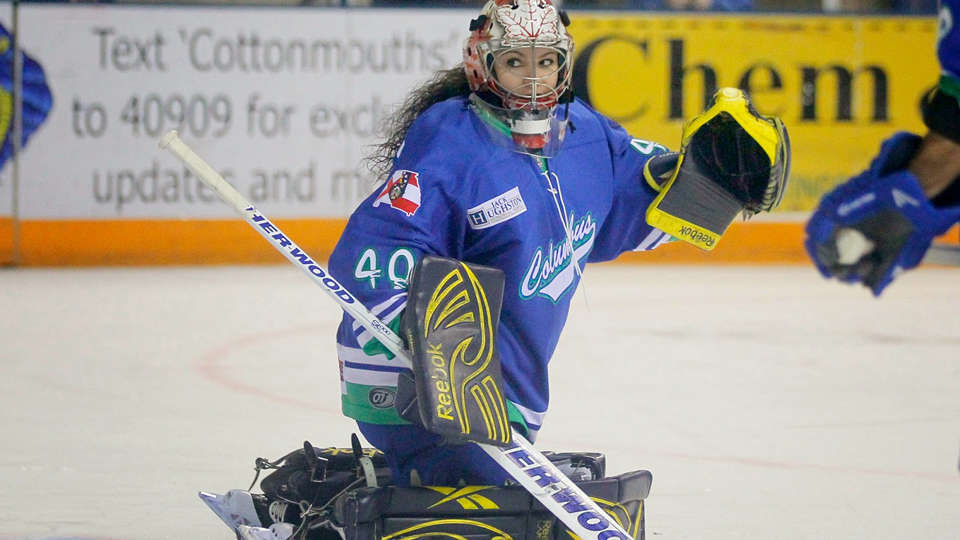A memorable moment from the 2014 Winter Olympics in Sochi was the Canadian women’s hockey team overcoming a two-goal deficit against Team USA with three and a half minutes left in the third period and winning the gold medal in overtime. Such exciting games are common between these two rivals. Prior to the Olympics, Canada played the Americans in a series of exhibition games and each game was a thriller, with line brawls ensuing in two of them. Sadly, the Olympics are the only time women’s hockey gets much attention from the media and hockey fans in general.
The skill, dedication, and hard work of our women’s hockey team go largely unappreciated in Canada. When Prime Minister Stephen Harper sat down with TSN Radio’s Mike Richards on March 7, he expressed this sentiment perfectly. While players on our men’s hockey team are “making millions of dollars, these girls are still not paid very much,” he said. “They’re going to the rink every day just for the love of it. It’s a struggle for the women, unlike our male professional players.”
Actually, Mr. Harper is wrong about the money; women hockey players don’t get paid to play hockey at all. In fact, in most sports besides hockey, football, baseball, basketball, soccer, and lacrosse, it’s rare for North American athletes to be paid. The only professional women’s league is the five-team Canadian Women’s Hockey League, where turning profits high enough to pay a player’s salary is out of the question. CWHL teams are forced to fundraise, and the money generated comprises almost 20% of all league funding. Season tickets for the CWHL are only $75, the cost of nosebleed seats at a Leafs game. The fact that 14 players on our Olympic women’s team play in the CWHL is shocking. These women play purely for the love of the game, and after the performances they put on for us at the Olympics, it’s safe to say that they deserve better than what the CWHL offers.
Can these women play in a professional league while earning a reasonable salary? It appears that they can—if they sign with men’s teams.
Following her stellar performance in the Olympics, Canadian goalie Shannon Szabados was given the opportunity to practise with the NHL’s Edmonton Oilers and shortly thereafter was offered a contract with the Columbus Cottonmouths of the Southern Professional Hockey League.
This is not Szabados’ first stint playing with men—she actually spent most of her career playing in men’s leagues, such as the Alberta Junior Hockey League and the NAIT Ooks men’s college hockey team, on which she played starting goalie. With the NAIT Ooks, she set a league record for the lowest goals against average, leading her team to their first championship in 16 years. In the AJHL, she won the award for the league’s top goaltender in the 2006/07 season.
“I think [signing with men] would be a great way to overcome sexist stereotypes,” said Jessica de Medeiros, a student at U of T’s Ontario Institute for Studies in Education. “Girls should at least have the chance to prove themselves.”
De Medeiros is hopeful that women competing in leagues with men will “get us closer to the day when ‘you play like a girl’ is no longer an insult”.
Michael Keaveney, the assistant coach of UTM’s men’s tri-campus hockey team, thinks along the same lines.
He says, “If you’re good enough you should play, no matter who you are.” After all, if a player is skilled enough to compete in a men’s professional league and be paid for her talents, then there’s no reason she should be stuck in an impecunious league like the CWHL. Although the average salary in the SPHL is only about $600–1,000 a week, depending on skill level, the fact that Szabados is a woman playing professional men’s hockey is a big step forward.
Katey Teekasingh, the goaltender for the Varsity Blues women’s hockey team, thinks this is a huge stepping stone for women in men’s sports. “I think it’s important to permeate this border [between] men’s and women’s sports, because it’s important that everyone, especially young girls with huge dreams, know that there’s a chance for them to be just as good as anyone—even a man—at a sport,” she said. “I think this has set the bar higher and will only push women and young girls to go farther and not feel constrained [by] their gender.”
Szabados made 27 saves in her debut game against the Knoxville Icebears on March 15, in which her team lost 4-3.

